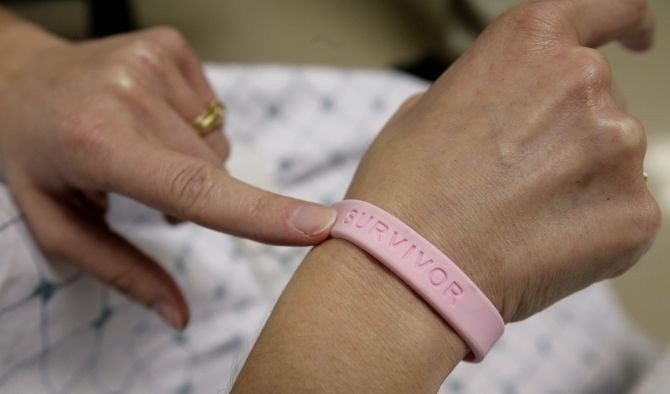New Blood Test Can Detect Early Stage Breast, Lung Cancer

A new blood test, which can detect early stage breast and lung cancers in just half an hour, has been developed.
The new blood test was developed by the researchers at Kansas State University and can not only detect cancers but also monitor a cancer therapy's effectiveness. "Right now the people who could benefit the most are those classified as at-risk for cancer, such as heavy smokers and people who have a family history of cancer. The idea is these at-risk groups could go to their physician's office quarterly or once a year, take an easy-to-do, noninvasive test, and be told early on whether cancer has possibly developed," said Deryl Troyer, professor of anatomy and physiology from Kansas State University.
Usually, breast and lung cancers are detected at stage 2 when the person starts showing symptoms like coughing, fatigue and pain. Therapies against these cancers work best when the cancer is detected early.
"The problem, though, is that nobody knows they're in stage 1. There is often not a red flag to warn that something is wrong. Meanwhile, the person is losing critical time," Stefan Bossmann, professor of chemistry, Kansas State University. The new blood test system uses iron nanoparticles coated with amino acids and a dye that interacts with the patients' urine or blood sample.
Each cancer interacts with the dye and amino acid mixture differently which allows the doctors to identify the type of cancer. The researchers say that the test can differentiate between cancer and other types of infection that may cause inflammation. A person who smokes a lot can have inflammation in the lungs but this may not necessarily be lung cancer. With this test, doctors will know whether the person has inflammation or something serious. "False-positives are something that we really want to avoid," Bossmann said.
A comprehensive test report including enzyme patterns can be obtained in just an hour after the test. The research team is working on slashing the time for test reports to just 5 minutes. They have already received $305,000 in funding for this project from the National Science Foundation.
The present study involved 20 people diagnosed with various stages of breast cancer and 12 patients diagnosed with lung cancer. Approximately 20 patients who weren't diagnosed with any cancer were used as control subjects. The blood test could accurately detect the presence of cancer in 95 percent of the cases including people who were in first stage of the cancer.
The researchers are now working on a similar type of blood test for pancreatic cancer.



























